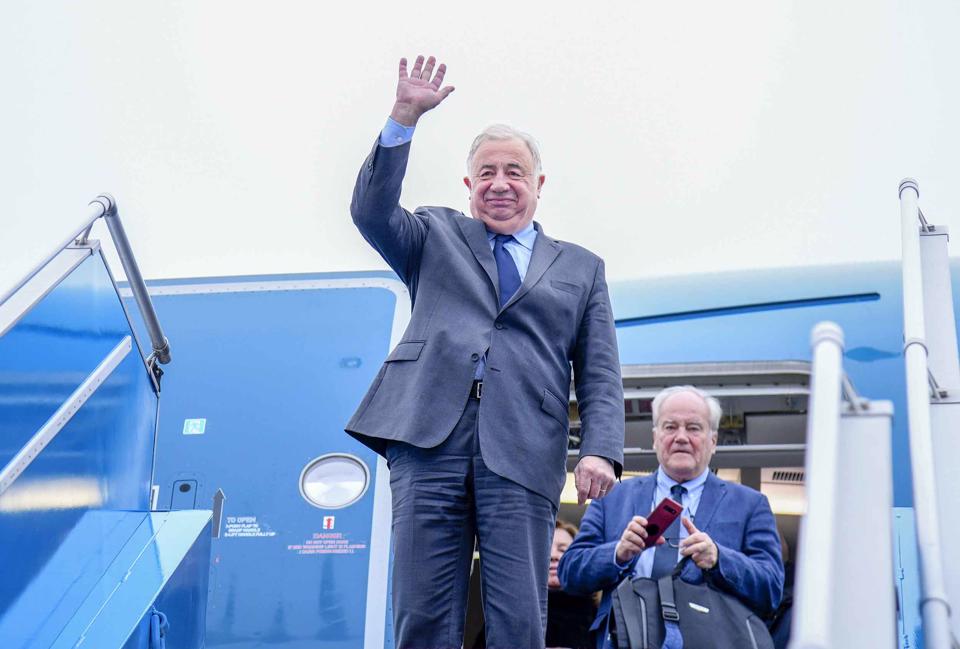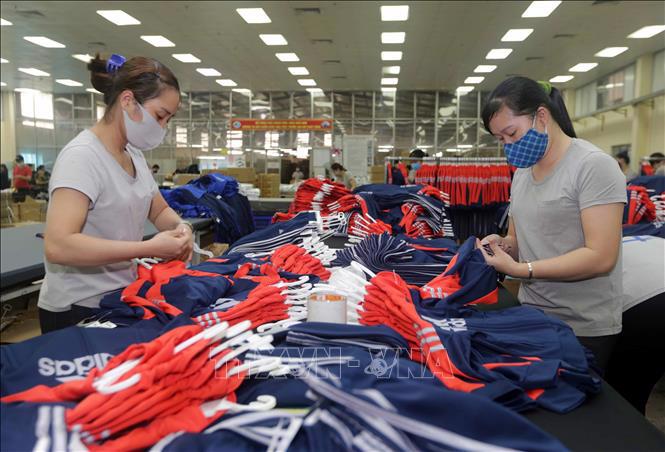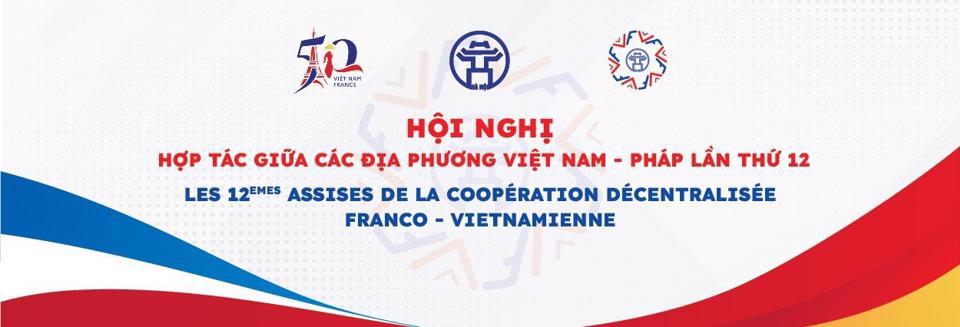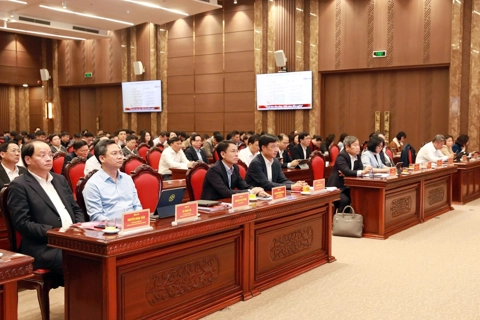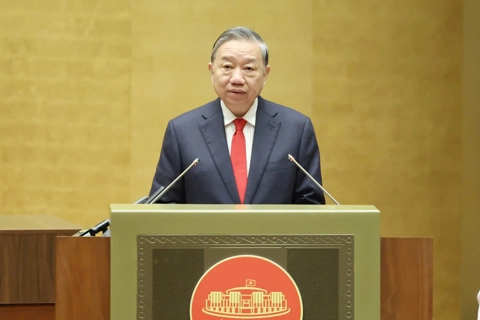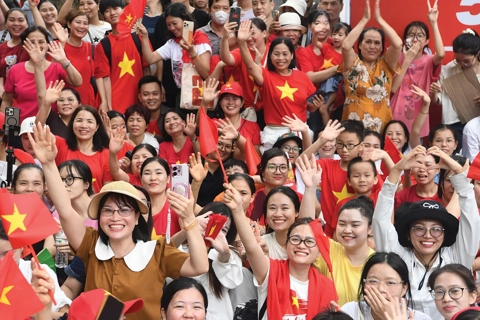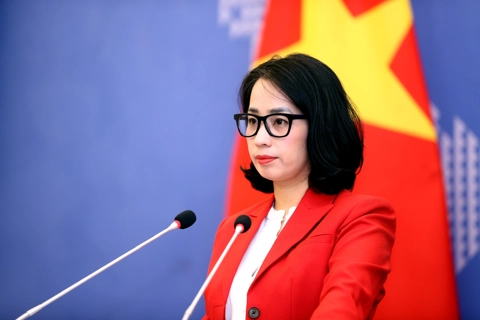Remarkable achievements in Vietnam-France relations after 50 years
Since the foundation of the diplomatic relationship on April 12, 1973, Vietnam and France have made remarkable achievements in trade relations.
The ratified European Union-Vietnam Free Trade Agreement (EVFTA) and the European Union-Vietnam Investment Protection Agreement (EVIPA) have facilitated Vietnam to increase its exports to France.
| President of the Senate of the French Republic, Gérard Larcher, visited Vietnam in early December 2022. Photo: The Hanoi Times |
France is now among the largest EU trade partners of Vietnam, and the Western Europe nation is the fourth largest EU export market to the latter.
Bilateral trade turnover between the two nations rose 15.7% annually on average from 2011-2019. Notably, bilateral trade turnover between Vietnam and France soared to US$5.3 billion in 2019 from US$1.6 billion in 2009.
The two nations' bilateral trade value kept rising in recent years to nearly $7.45 billion in 2021, and the figure was estimated at US$8.5 billion in 2022.
France is also among the biggest European donors of Vietnam-based official development assistance (ODA) projects while the latter is the second largest recipient of ODA funding from France, with total ODA capital having mounted to US$18.4 billion since 1993.
Vietnam is also one of the few nations that have enjoyed financial assistance from France's three financial aid channels: the public budget, preferential loans from the French Development Agency (AFD), and the Priority Solidarity Fund (FSP).
There are now 300 French companies operating in Vietnam, focusing on the processing and manufacturing industry, production activity, power distribution, services and retail, and real estate.
Particularly, Hanoi’s Metro No. 3 project has lured the highest amount of France’s ODA capital. The project is expected to improve the transportation system in the capital city and curb greenhouse emissions in the wake of climate change and its threats to the world.
Meanwhile, Vietnamese organizations and companies had poured more than US$38 million into 18 projects in France as of March 2022.
| Clothes are produced and exported to the EU at the Thai Nguyen Garment Company. Photo: Vietnam News Agency |
However, there is still room for the two nations to meet the full potential of their relations. The two governments expect to boost their bilateral relationship and call for stronger participation of French investors in future projects.
Both nations' universities and research institutes have signed hundreds of agreements to arrange many exchange and training programs for graduates and postgraduates. Each year, the French Government sponsors 80 Vietnamese students to come and study in the country. In the past 10 years, France has been the third largest host nation to Vietnamese students, and the number of overseas Vietnamese students in France has expanded by two-fifths to 7,000 people.
The two countries also see their cultural relationship pace up. Each year, the French Government spends five million euros (US$5.45 million) to foster both nations’ cultural activities in Vietnam. The finance often goes to the French cultural institutes in Hanoi, HCM City, Hue and Danang – the biggest cities of Vietnam where the public can enjoy those cultural activities.
In terms of healthcare, Vietnam and France have set up 30 joint projects on medical and pharmaceutical training. During the fight against the Covid-19 pandemic, Vietnam donated facemasks for local authorities and people of France. At the same time, the French Government decided to supply 5.5 million vaccine doses and equipment for Vietnamese medical facilities.
Local-to-local partnership – the highlight of bilateral relations
Local-to-local partnership, or decentralized partnership, between localities of Vietnam and France, was initiated in 1989 after Hanoi and the Ile-de-France region started their relationship. The first Vietnam-France local-to-local partnership conference was held in 1996 in Lille.
More than 38 French local governments and 18 Vietnamese provinces and cities have partnered with some 240 projects.
The activities focus on the sectors of Vietnamese localities' needs and the advantages of French authorities, such as culture, linguistics, tourism, heritage conservation, water management, and environmental protection.
| The banner of the upcoming Conference on the Vietnam-France Decentralized Cooperation. Photo: The Hanoi Times |
For the past 30 years, local authorities of Vietnam and France have made relentless efforts to foster their partnerships.
Local-to-local cooperation is now the highest level form of international cooperation model for Vietnamese and French authorities regarding the number of partners, financial commitment, and the scale of the partnership agreement.
The Vietnamese and French governments address decentralized partnerships as key boosters of bilateral relations.
As of 2022, the two nations had taken turns and successfully organized 11 meetings on decentralized cooperation.
Vietnam’s capital city, Hanoi, will host the 12th meeting on April 13-15, 2023, themed “Decentralized cooperation: The driver for sustainable, comprehensive recovery and growth after the Covid-19 pandemic”. Some 800 delegates are expected to attend the event.
The event is expected to pave the way for signing new bilateral cooperation agreements between the two governments and enable Vietnamese and French local authorities and partners to discuss future collaborative actions.
There will be four workshops on the following topics: (1) Opportunities and challenges in environmental protection and water management, (2) smart city development and digitalization, (3) culture, heritages and tourism, and (4) sustainable urban development.
Other activities aim to tighten the friendship and unity between Vietnamese and French localities, such as an exhibition featuring 100-120 booths to introduce Vietnamese specialties, cultural traits, and tourism sites; the “Balade en France” festival featuring 50 booths of Vietnamese and French hotels, restaurants, farming businesses, and food producers to promote French agriculture and food industry as well as French cuisine to the public; and an economic and business forum.
The 12th Conference on the Vietnam-France Decentralized Cooperation is one of the most important foreign relations events in Hanoi, especially when Vietnam and France celebrate the 50th anniversary of establishing their diplomatic relations and the 10th anniversary of the establishment of the Vietnam-France Strategic Partnership.
The event will assist Vietnam and Hanoi in promoting cultural traits, potentials, socio-economic achievements, political stances, and policies on foreign affairs and international integration.


